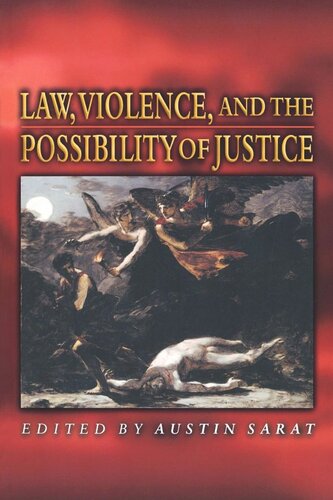

Most ebook files are in PDF format, so you can easily read them using various software such as Foxit Reader or directly on the Google Chrome browser.
Some ebook files are released by publishers in other formats such as .awz, .mobi, .epub, .fb2, etc. You may need to install specific software to read these formats on mobile/PC, such as Calibre.
Please read the tutorial at this link: https://ebookbell.com/faq
We offer FREE conversion to the popular formats you request; however, this may take some time. Therefore, right after payment, please email us, and we will try to provide the service as quickly as possible.
For some exceptional file formats or broken links (if any), please refrain from opening any disputes. Instead, email us first, and we will try to assist within a maximum of 6 hours.
EbookBell Team

4.3
88 reviewsLaw punishes violence, yet law depends on violence. In this book, a group of leading interdisciplinary legal scholars seeks to map the inexorable but unstable relationship of law to violence. What does it mean to talk about the violence of law? Do high incarceration rates and increased reliance on capital punishment indicate that U.S. law is growing more violent at a time when violence is being restrained in other legal systems? How is the violence of law represented in popular culture and does this affect law's actual legitimacy? Does violence express or distort the essence of law? Does law's violence serve justice?
In deeply original essays, the authors build on the seminal work of Robert Cover--one of the few legal scholars ever to consider the question of law and violence. In striving to situate his insights within current political, social, economic, and cultural contexts, they contemplate diverse and interrelated subjects surrounding the theme of law and violence. Among these are the purpose of law as punishment, the increasing number of executions in the United States, prison violence, racial disparity in sentencing, and the meaning of torture. The result is a remarkable volume that stimulates us to reconsider connections that we too often leave unexplored. In addition to the editor, the contributors are Marianne Constable, Peter Fitzpatrick, Thomas R. Kearns, Peter Rush, Jonathan Simon, Shaun McVeigh, and Alison Young.